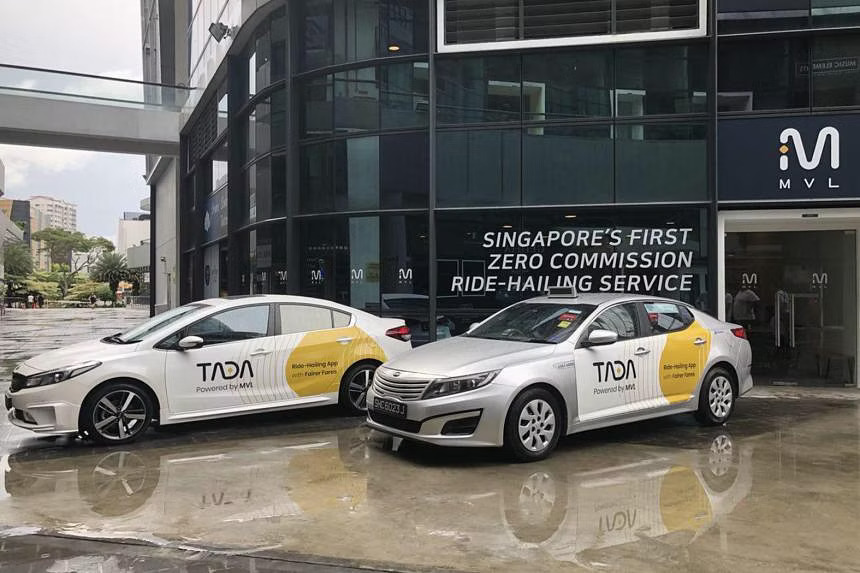HONG KONG (ANN/THE STRAITS TIMES) – Tada, Singapore’s ride-hailing platform, is expanding into Hong Kong in November, initially partnering with taxi fleets. This move aims to establish a presence in a market where Uber has become the main alternative to the city’s notoriously poor cab services.
This expansion coincides with the government’s plans to regulate private car-hailing services, which remain largely illegal in Hong Kong, unlike in other parts of Asia such as Singapore and mainland China.
“Our target is to launch in Hong Kong by the end of November,” Tada’s chief executive officer Sean Kim told the source in an interview on 15 July.
The company will work with taxi fleets to offer “3,000 to 4,000 vehicles” on its platform for a start.
“Singapore and Hong Kong share many similarities, which allows us to bring what we’ve learnt from our success in Singapore over to Hong Kong,” Mr Kim said.
“Like Singapore, Hong Kong has a diverse community with very tech-friendly users and very well-established public transport systems, including the taxi industry… But in Hong Kong, there is a gap in terms of embracing new changes – not necessarily technical ones, but in adapting to users’ needs and demands.”
Tada sees itself offering users “more options” as it plays the role of a “matchmaker” to connect demand and supply of ride-hailing services in the city, the CEO said.
In Hong Kong, it is illegal for drivers to provide paid rides without a taxi licence or a car-hire permit. First-time offenders face fines of up to HKD10,000 (SGD1,720).

Ride-hailing apps like US-based Uber operate in a legal grey area, providing services using taxis as well as private cars. The latter are not necessarily licensed to offer paid rides.
Six-year-old Tada is up against stiff competition. Besides Uber, it has to fight for market share with about a dozen other cab-hailing apps, including China-based Didi Chuxing and Amap.
Mr Kim believes Tada’s zero-commission model – which charges a small, fixed platform fee per ride – will appeal to drivers as it allows them to keep more of their earnings. Overall, this would result in better service, he said.
Uber charges its drivers around 15 per cent to 35 per cent commission per ride, cabbies told the source.
Tada’s fee for drivers in Hong Kong would be determined closer to its launch, Tada’s regional general manager Jonathan Chua said.
In Singapore, Tada charges drivers a platform fee of 60 Singapore cents for fares between SGD6 and SGD18, and 80 Singapore cents for fares above SGD18. The fee is waived for fares below SGD6.
This means drivers pay at most 10 per cent of their earnings per ride, and get to keep a larger proportion of their takings from longer-distance rides.
Tada also hopes to cater to Hong Kong’s unique and consistent demand for larger vehicles to ferry bigger groups, such as families with multiple children or helpers, Mr Chua said.
Taxi driver Wallace Lai, who is on the Uber platform, is looking forward to Tada’s arrival. He said he would definitely sign up if it takes a smaller cut of his earnings.
The 29-year-old, who uses three ride-hailing apps, said six or seven in every 10 rides he provides are via Uber, which collects a 25 per cent to 35 per cent cut from him per ride.
“Hong Kongers now prefer to book their taxis through Uber because of the better service” compared with street hailing or via other apps, he said.
“Uber has a very strong system for ratings and complaints. For drivers, poor ratings mean fewer passengers; skipping too many bookings could even get you banned. So of course the service is better if you booked your taxi through the app.”
Another cabbie, who wanted to be known only as Michael for privacy reasons, said he gave up using Uber mainly because of the high commission.
Tada’s zero-commission model might be more favourable to drivers, said Michael, 22. Currently, around 20 per cent of his income is earned via ride-hailing apps.
“But the Hong Kong market is already crowded with ride-hailing platforms… Tada will face a difficult start if it fails to pull enough passengers from those platforms to its own.”
Tada CEO Mr Kim, when asked if it would offer private car-hailing services in Hong Kong as well, said the firm “would not exclude the possibility of working with private cars… but only at a later stage” as it monitors the government’s decisions on regulating the ride-hailing market.
Uber boasts a database of more than 216,000 drivers in a city with 46,000 taxi drivers, 18,000 taxi licences and 1,500 car-hire permits.
The authorities in July promised to regulate ride-hailing services and potentially require licensing for platforms like Uber, but they need a year to propose a well-researched regulatory framework.


